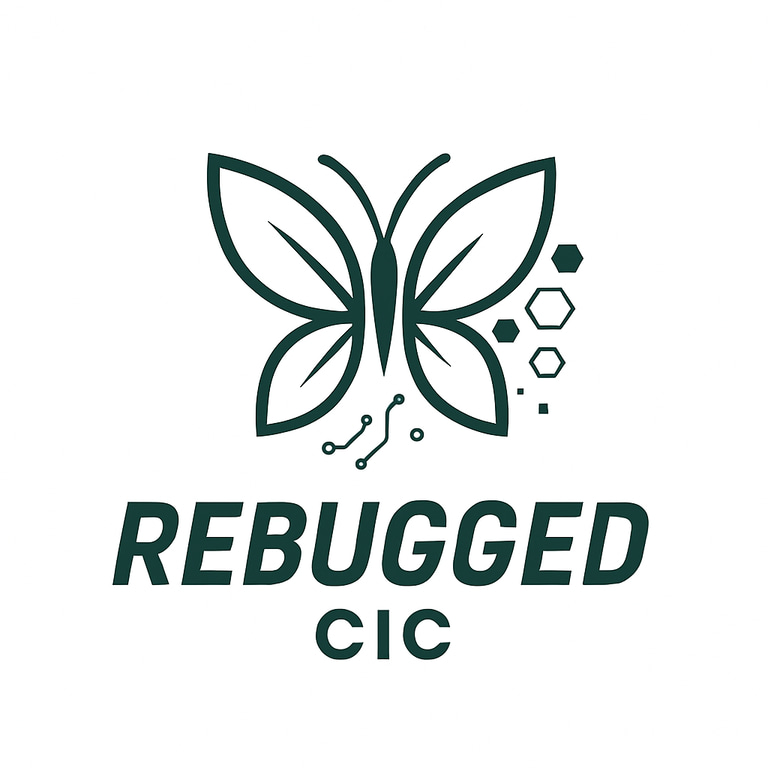Balancing Bees:
Protecting Wild Pollinators in a Changing Landscape
Dr Michael Ramsey
10/11/20252 min read


The Programme
Most people love the sight of a honeybee. They’re hard-working, fascinating creatures that pollinate many of the foods we depend on. But what if, in some places, our growing enthusiasm for keeping honeybees was making life harder for their wild cousins?
Across the UK, thousands of new hives are being set up each year in gardens, on city rooftops, and on farmland. Yet, at the same time, humans are drastically reducing the natural habitats that once supported a rich diversity of wild pollinators.
Over 97% of our wildflower meadows have been lost since the 1930s. Hedgerows, field margins, and nesting sites have been cleared or fragmented. This leaves wild bees and other pollinators competing for fewer and fewer floral resources, and in some cases, adding dense concentrations of honeybee colonies can tip that balance even further.
At Rebugged CIC, we believe that the answer isn’t to pit one kind of bee against another, it’s to find that balance. That’s the idea behind our new five-year programme, Balancing Bees.
What the Programme Will Do
Balancing Bees will bring together scientists, beekeepers, schools, and community volunteers to understand how honeybee numbers affect wild pollinators, and how we can manage both in harmony.
Over the next five years, we hope to:
Expand our Honeybee Colony Density Calculator into a national, free-to-use tool that helps beekeepers and councils decide how many hives an area can sustainably support.
Run field studies to explore how honeybee foraging influences solitary bee nesting and floral resource use.
Build a network of citizen scientists who will monitor pollinator activity and install hundreds of community bee hotels.
Work with schools and local groups to inspire the next generation of insect guardians through hands-on workshops and digital resources.
Why It Matters
Pollinators are the tiny engines of our ecosystems, they keep our gardens colourful, our crops productive, and our ecosystems thriving. But decades of habitat loss, pesticide use, and climate change have put many species under pressure.
By taking a science-meets-community approach, Balancing Bees aims to turn complex ecology into clear, local action. The programme will give communities the confidence to make decisions about hive placement, habitat creation, and planting that benefit everyone.
Powered by People
Our programme is founded on the 3Ps: People, Pollinators, and the Planet. It is built on collaboration. Beekeepers will contribute real-world data, councils will use the findings to guide urban planning, and volunteers will learn to identify and monitor insects in their local area.
We’ve already seen what’s possible. In a recent pilot, 85% of community bee hotels were occupied by solitary bees within a year, proof that, when given the opportunity, nature bounces back.
Looking Ahead
By 2031, we want every UK community to have access to the knowledge and tools needed to support pollinators wisely. The legacy of Balancing Bees will be more than research, it will be a movement of people working together to give all insects the things they need to thrive.
Get Involved
If you’re a beekeeper, teacher, community group, or simply someone who loves nature, we’d love you to join us.
Contact us to see how you could be involved.
Rebugged CIC
Empowering communities to protect and restore insect biodiversity through through education, rewilding, and citizen science.
Keep Informed
Email: info@rebugged.co.uk
Registered Address: Rebugged CIC Allia Future Business Centre, London Road, Peterborough, PE2 8AN
© 2025. All rights reserved.
ICO registered company: ZC007208
